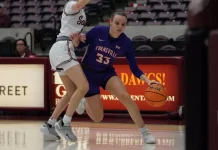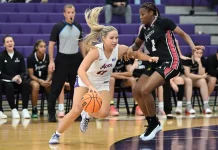 Twenty students from majors across the University of Southern Indiana participated in a cultural immersion course that took them to the country of Ghana in West Africa for nine days from May 7-19. The three-credit course counted toward participants’ core courses.
Twenty students from majors across the University of Southern Indiana participated in a cultural immersion course that took them to the country of Ghana in West Africa for nine days from May 7-19. The three-credit course counted toward participants’ core courses.
The Ghana trip is part of a larger global engagement initiative being supported by the University through internships, scholarships, and programming. This summer students are also studying and conducting research in Scotland, Japan, India, and Argentina. “This is an intentional effort that goes beyond the traditional experience,†said Heidi Gregori-Gahan, director of International Programs and Services. “They’re really getting to understand global issues and culture in a more in-depth way.â€
Prior to leaving for Ghana, participants spent five weeks learning about the culture and history of Ghana. They prepared presentations before departing and are working on papers since their return.
Ghana_clinic“I believe this trip was transformative for the majority, if not all, of the students who participated,†said Dr. Ronald Rochon, provost and professor of education at USI. “They learned a lot, they saw a lot, they experienced a lot.†In addition to Rochon, faculty members Dr. Joseph Uduehiand Gregori-Gahan accompanied the students to Ghana.
The trip gave students access to unique service learning opportunities. Half of the students went to outdoor clinics to work with women and infants. They weighed infants and provided immunizations and gave consultations. The rest of the students went to local schools, where they tutored English and provided mathematics and U.S. history instruction.
Ghana_groupAll of the students visited historical sites throughout Ghana including the city of Kumasi, Kakum National Forest, museums, botanical gardens, and Africa’s Gold Coast, where they learned about the historical impact of the region and how it pertains to Ghana’s independence. They also learned about the history of the
country, early slave trade, and other factors related to the country’s history.
“They got to ask important questions about their role in the world and their relationship with Africa,†said Rochon. “They were able to explore the impact of a nation that’s so newly independent. They were able to experience a very diverse set of experiences.â€
Rochon said he would like to see the University offer the cultural immersion course again. “I’d like to see this become part of our University culture. I’m quite confident we can make that happen.â€




